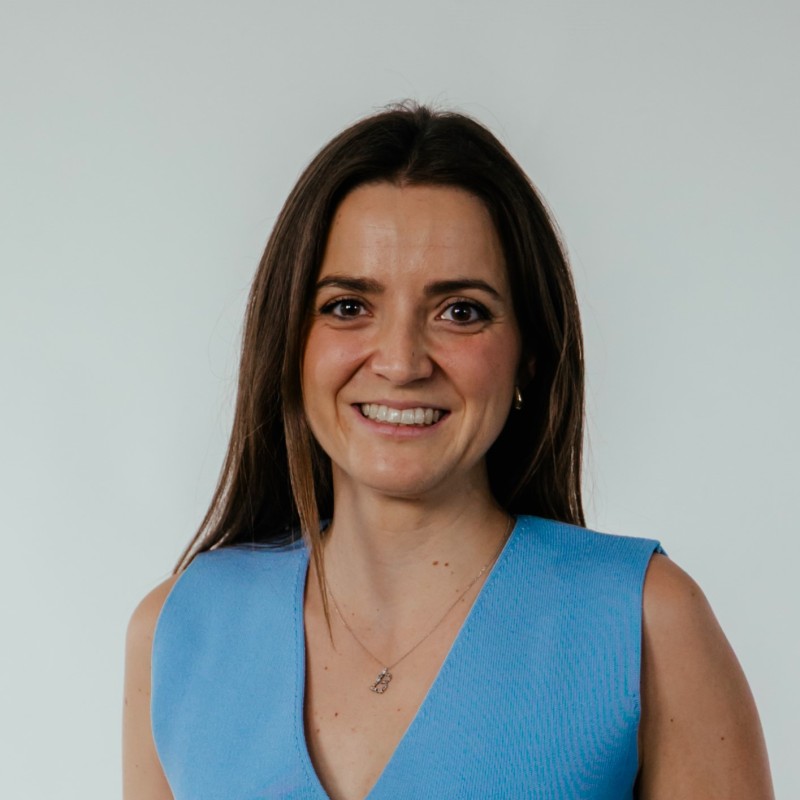The European startup ecosystem is experiencing a transformative shift as stage venture capital evolves beyond traditional funding models. In an era where 5G technology and artificial intelligence are reshaping industries, understanding the nuanced stages of venture capital has become critical for founders seeking sustainable growth and corporate innovation leaders pursuing competitive advantages.
Why Stage Venture Capital Matters in Today's Innovation Landscape
European VC investment fell to $11.3B in Q3 2024, marking the lowest quarterly total in four years, yet this apparent downturn masks a fundamental evolution in how capital flows through the ecosystem. While traditional funding models struggle with risk aversion, innovative approaches like venture-client partnerships are emerging as game-changers for both startups and corporations.
The venture-client model represents a paradigm shift where corporations become first customers rather than just investors, creating immediate revenue streams while reducing dilution anxiety for founders. This approach has proven particularly effective in Germany, where 73% of European deals were early-stage in 2024, outperforming the US market's 64% early-stage focus.
Wayra: Pioneering the Venture-Client Revolution
Wayra Germany exemplifies how stage venture capital can transcend traditional boundaries through its unique venture-client model. Unlike conventional accelerators that focus solely on equity investments, Wayra creates a blueprint for resilient customer relationships between Telefónica and innovative tech startups, benefiting both parties through immediate commercial validation.
The model operates on a strategic 75% synergy focus with Telefónica operations and 25% flexibility for promising tech bets, positioning Wayra as more than a typical corporate accelerator. With access to Telefónica's 46 million German customers and seamless market entry to Spain, the UK, and Brazil, startups gain unprecedented scaling opportunities that traditional VCs cannot provide.
The 5G Innovation Hub Advantage
At the heart of Wayra's offering lies the 5G Tech Lab in Munich, providing startups with cutting-edge infrastructure to develop and showcase their use cases. This innovation hub offers exclusive tools, access to the Wayra IoT platform, and specialized expertise that transforms theoretical concepts into market-ready solutions.
The 5G Tech Lab addresses a critical gap in the European startup ecosystem where AI and HealthTech dominated, capturing 32% and 17% of European investments respectively in 2024. By providing real-world testing environments, Wayra enables startups to validate their technologies with actual network infrastructure rather than simulated conditions.
Understanding the European Stage Venture Capital Landscape
Pre-Seed to Series A: Navigating the Funding Stages
The European venture capital journey typically unfolds across distinct stages, each with specific requirements and expectations. Pre-seed funding (0-1 year) focuses on proof-of-concept development, while seed funding (1-2 years) emphasizes market validation and initial traction. Series A (2-3 years) demands demonstrated product-market fit and scalable business models.
Germany secured 13% of Europe's VC volume in 2024, with notable successes like defense-tech firm Helsing raising $484M, demonstrating the market's appetite for deep-tech solutions. However, the traditional funding path often creates a "valley of death" between seed and Series A rounds, where startups struggle to maintain momentum without revenue generation.
The Corporate Partnership Solution
Forward-thinking startups are increasingly leveraging corporate partnerships to bridge funding gaps and accelerate market entry. The venture-client model pioneered by companies like Wayra offers immediate revenue opportunities while providing corporations with access to cutting-edge innovations.
Stage Venture Partners, a pre-seed and seed stage venture capital firm, exemplifies this trend by focusing on emerging software technology for business-to-business markets. Their approach emphasizes recurring revenue earned at the frontiers of enterprise software, aligning with the corporate partnership strategy that reduces traditional funding dependencies.
Wayra's Comprehensive Service Portfolio
For Startups: Accelerating Growth Through Corporate Validation
Wayra's Services for Start-ups encompass a holistic approach to venture development, combining financial support with strategic market access. The Traction Boost program specifically addresses early-stage validation challenges by connecting startups with Telefónica's operational needs, creating immediate proof-of-concept opportunities.
The Sales Boost initiative takes this further by facilitating actual revenue generation through Telefónica's customer base. This approach transforms the traditional accelerator model from equity-focused to revenue-driven, addressing the fundamental challenge that 24% year-on-year surge in European private equity/VC investments to €126B in 2024 still leaves many startups struggling with customer acquisition.
For Corporations: Innovation Through External Partnerships
Wayra's Services for Telefónica demonstrate how large corporations can systematically integrate startup innovations into their operations. The Efficiency Boost program identifies startups capable of solving specific operational challenges within Telefónica departments, creating measurable value for both parties.
The Revenue Boost initiative focuses on startups that can directly contribute to Telefónica's annual profit through new product offerings or market expansion opportunities. This solution-oriented approach ensures that supported startups align with corporate strategic objectives while maintaining their innovative edge.
Real-World Success Stories: Venture-Client Model in Action
Galactify and Telefónica Deutschland Partnership
The collaboration between Galactify and Telefónica Deutschland exemplifies the venture-client model's effectiveness. Facing slow internal feedback loops that hindered product development, Galactify partnered with Wayra to access Telefónica's operational environment. The result was a custom platform deployed within five months, enabling Galactify to hire additional staff during the proof-of-concept phase and establish a sustainable revenue stream.
This case demonstrates how corporate partnerships can accelerate startup growth beyond traditional funding timelines. Rather than waiting for Series A validation, Galactify achieved market validation and revenue generation simultaneously, positioning the company for subsequent funding rounds from a position of strength.
BMW and AirConsole: Automotive Innovation Acceleration
The partnership between BMW and AirConsole showcases how venture-client relationships can transform entire industries. Addressing the challenge of in-car entertainment lagging behind consumer technology expectations, BMW's Startup Garage facilitated AirConsole's gaming feature integration into the 5 Series within record time.
This collaboration highlights the strategic value of corporate innovation programs that extend beyond traditional venture capital. By providing immediate market access and technical integration support, BMW enabled AirConsole to validate their technology in real-world conditions while accelerating their go-to-market strategy.
Investment Framework and Ticket Sizes
Wayra Germany offers investment opportunities ranging from 150k to 5M€, providing flexibility across different startup stages and capital requirements. Importantly, Wayra's approach differs from traditional VCs by not participating in financing rounds, instead focusing on revenue generation and market validation through corporate partnerships.
This investment framework addresses a critical gap in the European market where traditional VCs often require significant equity stakes for relatively small investments. By combining modest capital injection with immediate revenue opportunities, Wayra's model offers founders a path to growth that preserves equity while accelerating market entry.
Stage-Specific Investment Strategies
StageOne Ventures demonstrates the importance of stage-specific investment approaches with their focus on early-stage, transformative deep tech startups solving complex enterprise challenges. With more than $500 million under management across four top-ranked funds, they exemplify how specialized stage venture capital can generate superior returns through focused investment strategies.
The key to successful stage venture capital lies in understanding that different funding stages require different value propositions. Pre-seed investments focus on technology validation, seed funding emphasizes market fit, and Series A capital drives scaling operations. Corporate partnerships can complement each stage by providing real-world validation and revenue generation opportunities.
Practical Implementation: Getting Started with Stage Venture Capital
Preparation and Documentation
Successful stage venture capital fundraising requires meticulous preparation across multiple dimensions. Startups must prepare comprehensive financial forecasts spanning 3-5 years, detailed cap tables showing current ownership structures, and thorough IP documentation protecting their competitive advantages.
The documentation process should align with stage-specific investor expectations. Pre-seed investors focus on team capabilities and market opportunity, while seed investors examine traction metrics and business model validation. Series A investors demand proven unit economics and scalable growth strategies.
Timing and Milestone Alignment
Strategic timing remains crucial for stage venture capital success. The typical progression follows pre-seed funding (0-1 year for concept validation), seed funding (1-2 years for market entry), and Series A (2-3 years for scaling operations). However, corporate partnerships can accelerate this timeline by providing immediate market validation and revenue generation.
Founders should align their funding timeline with specific milestones that demonstrate progress and reduce investor risk. Corporate partnerships through programs like Wayra's venture-client model can provide these milestones through actual customer deployments and revenue generation.
Network Building and Warm Introductions
The European venture capital ecosystem relies heavily on network effects and warm introductions. Successful founders leverage LinkedIn connections, industry events, and accelerator networks to access investor relationships. Cold outreach typically yields poor results compared to introductions through mutual connections.
Corporate innovation programs provide unique networking opportunities by connecting startups with industry leaders and potential customers. Wayra's global network spanning Germany, Spain, the UK, and Brazil offers startups access to diverse markets and partnership opportunities that traditional accelerators cannot match.
Addressing Common Founder Challenges
Early Dilution Anxiety
Many founders struggle with equity dilution concerns, particularly in early funding rounds where valuations may not reflect long-term potential. The venture-client model addresses this challenge by generating immediate revenue that can reduce funding requirements and improve valuation metrics for subsequent rounds.
Wayra's Traction Boost program specifically targets this pain point by enabling startups to fund proof-of-concept development through corporate partnerships rather than equity dilution. This approach allows founders to maintain greater ownership while achieving critical validation milestones.
Post-Seed Valley of Death
The period between seed funding and Series A represents a critical challenge where many startups struggle to maintain momentum without additional capital. Corporate partnerships provide a solution by generating revenue that can bridge this gap while building the traction metrics necessary for Series A success.
BMW Startup Garage and similar corporate innovation programs offer non-dilutive R&D capital that can sustain startups through this challenging period. By focusing on specific corporate challenges, startups can generate revenue while developing solutions that address real market needs.
Cross-Border Scaling Friction
European startups often face challenges when expanding across different markets due to regulatory differences and cultural nuances. Multi-hub networks like Bosch Startup Harbour provide engineering access and local market knowledge that can accelerate international expansion.
Wayra's presence across multiple European markets and Brazil provides startups with seamless access to diverse customer bases and regulatory environments. This global reach enables startups to test their solutions across different markets while maintaining consistent support and partnership relationships.
Frequently Asked Questions
How much equity should founders retain after Series A funding?
Successful founders typically target 15-20% ownership retention post-Series A, with dilution averaging 20% per funding round. Corporate partnerships can help maintain higher ownership percentages by reducing funding requirements through revenue generation.
What metrics attract seed-stage investors in Europe?
European seed investors focus on 10%+ weekly growth rates, 3x LTV/CAC ratios, and monthly recurring revenue exceeding €50K. Corporate partnerships can accelerate these metrics by providing immediate customer validation and revenue streams.
Can corporate partners co-invest with traditional VCs?
Yes, 42% of European exits in 2024 involved private equity-corporate syndicates, demonstrating the growing integration between corporate innovation programs and traditional venture capital. This trend reflects the value of combining financial capital with strategic partnerships.
What industries offer the best opportunities for venture-client partnerships?
AI and HealthTech sectors captured 32% and 17% of European investments respectively in 2024, indicating strong corporate demand for innovative solutions. 5G infrastructure, cybersecurity, and enterprise software also present significant opportunities for venture-client collaborations.
How does Wayra's model differ from traditional accelerators?
Unlike traditional accelerators that focus primarily on equity investments and mentorship, Wayra's venture-client model emphasizes immediate revenue generation through corporate partnerships. This approach provides startups with customer validation and market access while contributing to corporate innovation objectives.
Conclusion: The Future of Stage Venture Capital
The European stage venture capital landscape is evolving toward more sophisticated models that combine traditional funding with strategic corporate partnerships. As demonstrated by Wayra's success in Germany and similar programs across Europe, the venture-client model offers a compelling alternative to purely equity-based funding approaches.
For startups seeking sustainable growth in the 5G and AI era, the key lies in understanding how different funding stages can be enhanced through corporate partnerships. By leveraging programs like Wayra's comprehensive service portfolio, founders can accelerate their growth trajectory while maintaining greater equity ownership and achieving faster market validation.
Corporate innovation leaders similarly benefit from these partnerships by accessing cutting-edge technologies and solutions that drive operational efficiency and revenue growth. The future of European innovation depends on continued collaboration between established corporations and emerging startups through sophisticated venture-client models.
Ready to explore how stage venture capital can accelerate your startup's growth? Contact Wayra to discover how our venture-client model can provide immediate market access and revenue opportunities while preserving your equity for future growth.
Additional Resources
Explore Wayra's complete service ecosystem:
Join the Wayra ecosystem and transform your startup journey through proven venture-client partnerships. Connect with our team to begin your acceleration journey today.














